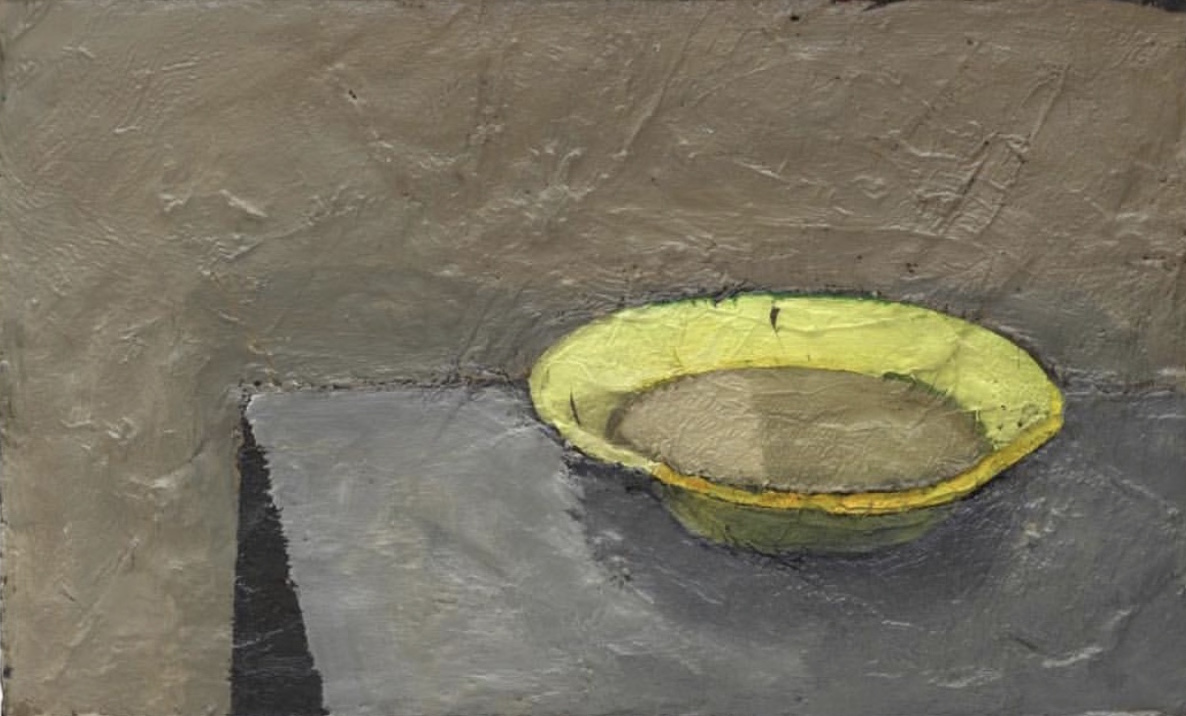
"Recover ~ Reconstruct ~ Restore."
This placard for an architectural recuperation business on Sterling Street reads like a commandment in the day's earliest hours. I like re- words, but only when they are pre-constructed in Latin and not added on as morphological prefixes (re-elect, re-dial, re-think). I write down the command on the corner of a page in my journal with a certain purposeful penmanship.
♦
The interior shifts are trickier to write about. What can anyone definitively say of their mutating internal states? I like the resolve engendered in the long days, the black-and-white way you can withhold certain things from entering your body and mind and in doing so create psychic real estate. Refusal as a fact is reassuring, simple, and effective. In Buddhism it is called a renunciation, and every time I have removed something from my life it has made a more long-lasting impact than adding a desired habit. Subtraction as lifestyle is underutilized.
Productive speech is one non-material point of focus. How can the ways I listen and speak, especially in high-stress or volatile situations, become more constructive? Crucially, how can constructive language preserve my energy and sanity?
Am I speaking fewer words each day (in the interest of self-preservation) or choosing them more perspicaciously?
Confrontation is a sub-set of productive speech. That word has a scary, even threatening tone for a lot of people, as it used to for me. But it has become an important principle. Personally speaking, in this moment it translates as full accountability with self (e.g. negative self-talk, destructive thought patterns) or others (e.g. degrading or abusive language, derailing collective action). It means making implicitly undesired behaviors explicit, especially in a communal environment. It also means practicing—possibly uncomfortably in the beginning—honest and nonviolent communication about harmful conduct, which can begin with a simple, forward statement ("that's not OK").
What confrontation can help avoid is spiritual bypass, storing repressed or constrained conflict in the body, or toxifying one's psyche with unexpressed resentment. Sometimes confrontation isn't possible, or necessitates total avoidance. But this month, being a closer witness to undesirable patterns of speech and behavior in the self or others, it has become a sharpened tool. I feel closer to a more intimate comprehension of Audre Lorde's statement that our silence will not save us.
♦
News, always bad news. The disinherited, the deterred, the disenfranchised. The children dying in the U.S. war-prison-death industrial complex are branded with the word immigrant before they are children. Immigrant children, never just children. They are robbed of their childhoods twice, adultified by government, journalism, populace, and other forces neatly grouped together under the word society.
♦
I go to class around 19:00, noticing the effects of training in a fasted state versus not. I haven't been able to box this month; something about the high-cardio aspect of boxing in the face of daylong water and calorie deficit gives me pause. But that doesn't make sense given how intense the cardio output is in capoeira. Still, I make every training, even more consistently and promptly than before.
Capoeira is my lifeline, my shadow self, and my oldest friend. My mother told me a long time ago that a friend (and by this she meant a true friend, with every sense of richness and vitality in that word) is a clean reflector of the self in the present condition. Capoeira is my cleanest mirror.